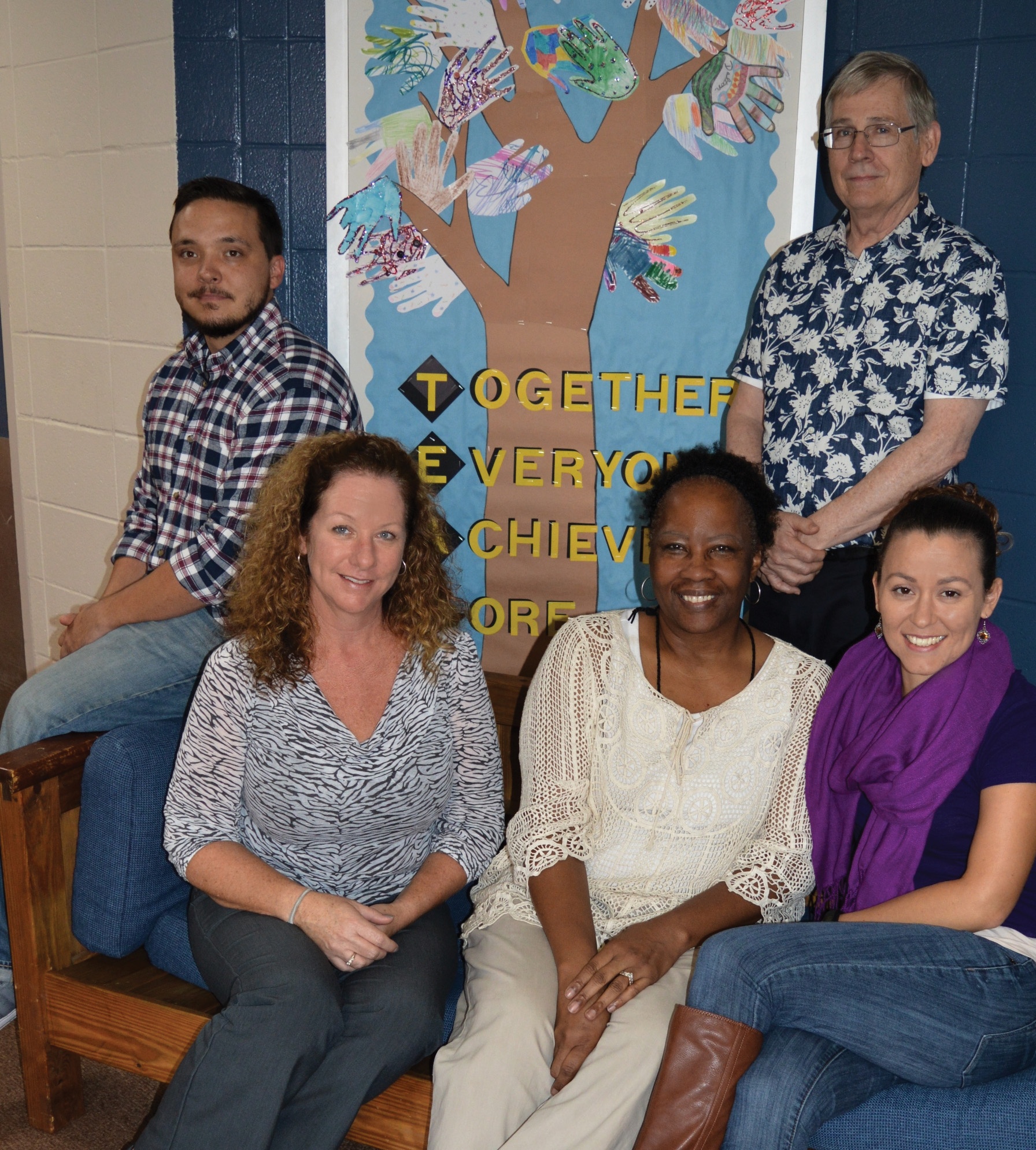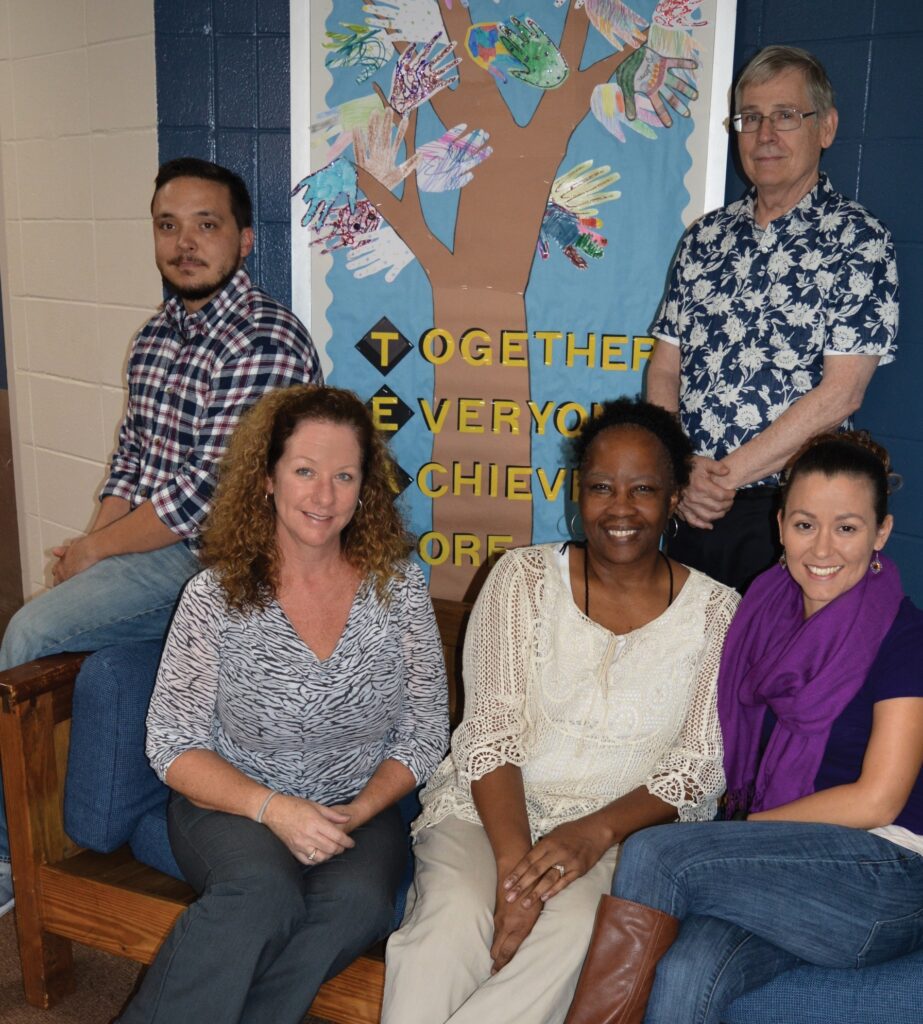Case managers: Daily support, daily care for each child
East student at Benedictine is a picture made up of many different puzzle pieces. Collecting the pieces and putting together the whole picture of each child is an essential role of Benedictine’s Case Management Team. Their expertise helps Benedictine’s teachers, direct support professionals, parents and other providers see all facets of each child, while encouraging each young person to achieve his or her greatest potential – which is Benedictine’s mission for all of its individuals.
Team Leader Nancy Morris, LGSW, who has been with Benedictine nearly 22 years, comments “Each day involves gathering information to help us see the whole picture of each child.”
The five Case Management team members, who are responsible for checking in on 10 to 15 students, ages 5 through 21, each day, deal with a variety of student needs. As more than 75 percent of Benedictine’s student population has some form of autism, the special services and skills of the Case Management team are utilized every day. While some Benedictine students receive direct counseling services, many more need daily support with behavioral issues. Thus, team members work Mondays through Fridays and are available to assist with any crisis situation as needed.
Karen McCall, MSW, also a Case Management team member, adds, “We provide support in the classroom as students begin their school days, checking with the infirmary about student’s health status and sharing information with teacher to help them be more effective with students.”
According to Morris, “It is a juggling act. We have to prioritize each day with the circumstances we encounter. I have faith and confidence in our teachers, one-on-one staff, residential and special services staff that our students get what they need each and every day. It takes comradery and teamwork in this intense environment.”
In addition to working with Benedictine staff, team members coordinate visits between the students and other in-house staff, family members, and outside government agencies (including service coordinators, governmental agency representatives, and legal professionals).
Malcom Frazer, LCSW-C, who has worked at Benedictine for nearly 30 years, adds, “We maintain close contact with parents, especially before and after home visits, to handle the transitions that can be challenging for students between home and school.”
Frazer notes that because so many of today’s residential and day students have some form of autism,, there is a greater need for planning and an increasing need to help them master auxiliary communication techniques through iPads and other vice output devices in order to communicate with Benedictine staff and their family members.
“Communications approaches need to be individualized since students can be anywhere on the autism spectrum. No case is the same.” He clarifies, adding, “When you meet one person with autism, you have met one person with autism.”
Because behavior is often the communication tool utilized by students on the autism spectrum, team members also coordinate meeting with staff behavior specialists to develop and modify behavior plans and crisis plans as needs arise. Plans are individualized and child-focused. The benefits of the team approach with social work is that team members turn to each other for support and share ideas that can be implemented program wide, while staying in compliance with licensing agencies.
Team member Amanda Leins, LGSW, the newest member of the Case Management team, adds, “I am connected to my team members and feel as if I have known them for years.” Lens also runs Benedictine’s Individual Girls Group, a weekly social skills group, helping Benedictine’s higher functioning female students learn how to interact with each other. The group strives to help students with communication skills that will ultimately help them with employment and life in the community at large.
Other extracurricular activities that team members participate in includes sports, such as basketball and soccer. Team member John Rutkoswki , BS Case Manager, comments, “Seeing the students make progress is what is rewarding about my job.”
Morris concludes, “By working as a team, we can offer support to other Benedictine staff, as well as one another, as we treat the whole child here. It is so rewarding to see our students expand their lives. As the community has exposure to Benedictine’s students they will see that our students are just trying to live the best life they can live- just like each of us. Our job is to help them do that.”
See full issue here:









